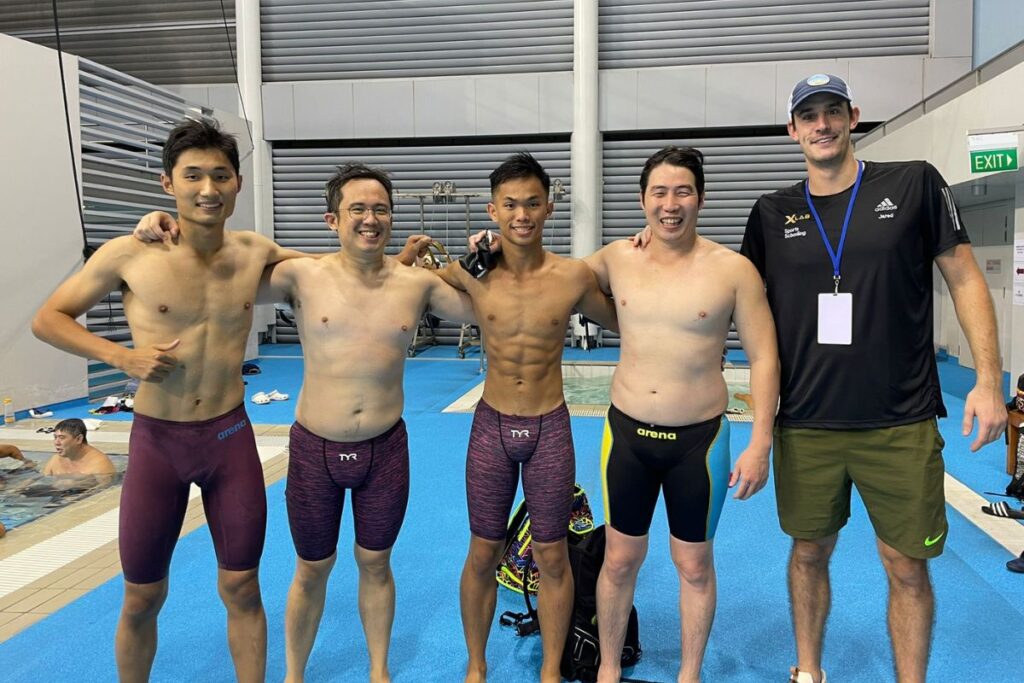Swimming is more than just a sport; it’s a way of life that forms strong, supportive communities around the world. Whether you’re a competitive athlete, a recreational swimmer, or a parent cheering from the bleachers, the bond created through this shared passion is undeniable. In this blog post, we’ll dive into how swimming forms a community like no other.
Shared Goals and Aspirations
One of the most powerful aspects of swimming as a community is the shared pursuit of common goals. Competitive swimmers strive for personal bests, team victories, and even Olympic dreams. This shared ambition fosters a sense of unity among athletes, coaches, and families alike. The shared goal-setting process creates a supportive environment where everyone is encouraged to push their limits.
Supportive Network
Swimming communities are like extended families. Whether it’s a tough practice, a disappointing race, or personal challenges outside the pool, fellow swimmers and coaches are there to offer support. The bonds formed in the water extend beyond the pool deck, with individuals supporting each other in all aspects of life.
Coaches and Mentors
Coaches play a pivotal role in the swimming community. They provide guidance, motivation, and mentorship to swimmers, helping them grow not only as athletes but as individuals. Coaches often become lifelong mentors, offering valuable life lessons that extend far beyond the pool’s edge.
Healthy Competition and Camaraderie
Swimming competitions foster both healthy rivalry and camaraderie. Swimmers push each other to excel, and the mutual respect gained through competition forms lasting friendships. It’s not uncommon to see competitors congratulating each other with a smile after a race, demonstrating the sportsmanship ingrained in the swimming community.
Inclusivity and Diversity
Swimming is a sport that transcends boundaries. It welcomes individuals of all ages, backgrounds, and abilities. The swimming community prides itself on inclusivity, making sure that everyone, regardless of their skill level or physical capabilities, feels a sense of belonging. This diversity enriches the community’s fabric, creating a tapestry of experiences and perspectives.
Volunteerism and Giving Back
Swimming communities often emphasize the importance of giving back. Swimmers, parents, and supporters frequently volunteer their time and resources to organize events, fundraisers, and initiatives that benefit the community or charitable causes. This culture of altruism strengthens the bonds within the swimming community and extends its positive influence beyond the pool.
Lifelong Friendships
Perhaps one of the most cherished aspects of swimming is the friendships formed along the way. From childhood teammates to college swimming buddies, these connections often last a lifetime. Swimmers share experiences that create lasting memories, from early morning practices to team trips and championships.
Swimming is not just a sport; it’s a way of life that forges enduring connections and forms a close-knit community. Whether you’re a competitive swimmer or a recreational enthusiast, the swimming community offers support, camaraderie, and lifelong friendships. The shared experiences, goals, and values create a sense of belonging that extends well beyond the water’s edge. Swimming doesn’t just shape individuals; it builds communities, leaving a legacy of unity and support that is as deep and enduring as the waters they swim in.
Swimming is a sport that demands dedication, discipline, and a relentless pursuit of excellence. For young, aspiring swimmers, embarking on a junior swimming career, the journey is not just about jumping into the pool and splashing around. It’s about committing to high-level training from an early age. In this article, we’ll explore why high-level training is crucial in a junior swimming career and how it can set the foundation for success both in and out of the pool.
Building Strong Fundamentals
High-level training provides junior swimmers with the opportunity to develop strong fundamentals from the get-go. This includes perfecting stroke techniques, mastering turns, and improving underwater propulsion. These fundamentals are the building blocks of a successful swimming career. The sooner they are established, the more solid the foundation for future growth.
Setting Goals and Aspirations
Structured training programs at the junior level help swimmers set and work towards their goals. Whether it’s making a state championship, joining a competitive club team, or even aiming for the Olympics, high-level training instills the importance of setting and working towards achievable objectives. This early exposure to goal setting not only helps in swimming but also fosters important life skills like ambition and determination.
Time Management and Discipline
A junior swimming career often involves rigorous training schedules alongside academic responsibilities. High-level training teaches young swimmers the art of time management and discipline. Balancing school, training, and social life becomes a valuable skill that can be applied in various aspects of life, from college to careers.
Physical and Mental Conditioning
Swimming at a high level pushes the body to its limits. Junior swimmers undergoing this training learn the importance of physical conditioning, which includes strength training, flexibility, and endurance. Simultaneously, they develop mental resilience and toughness as they face the challenges of rigorous training, competitions, and even occasional setbacks. These attributes are not only essential for swimming but also for overall personal development.
Healthy Lifestyle Choices
High-level training often comes with a strong emphasis on nutrition, sleep, and overall well-being. Junior swimmers learn to make healthier lifestyle choices early on, which can have a lasting impact on their health and fitness throughout life. These habits extend beyond the pool, promoting a healthier and more balanced lifestyle.
Competition and Camaraderie
Competing at a high level introduces junior swimmers to top-tier competition. This experience is invaluable for improving performance and fostering a spirit of competitiveness. Moreover, being part of a team and sharing the training experience with peers builds strong friendships and camaraderie, contributing to a supportive and encouraging environment.
College Scholarships and Career Opportunities
High-level training can open doors to college scholarships and career opportunities. Many universities offer scholarships to talented swimmers, providing them with a chance to further their education while continuing to swim at a high level. Furthermore, the skills acquired through swimming, such as discipline, teamwork, and time management, are highly regarded by employers, making it an asset in various career paths.
In a junior swimming career, high-level training is the cornerstone of success. It not only shapes swimmers into better athletes but also into well-rounded individuals who carry valuable life skills with them into adulthood. Whether the ultimate goal is to reach the Olympics or simply to enjoy the sport at a high level, the benefits of early and intense training are undeniable. The commitment, discipline, and dedication instilled through high-level training set junior swimmers on a path towards personal and athletic achievement that can last a lifetime.




